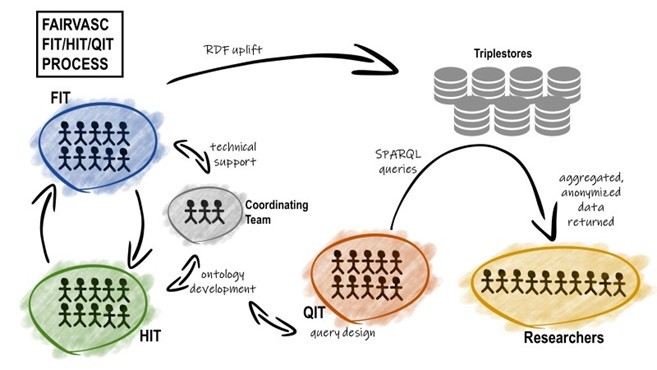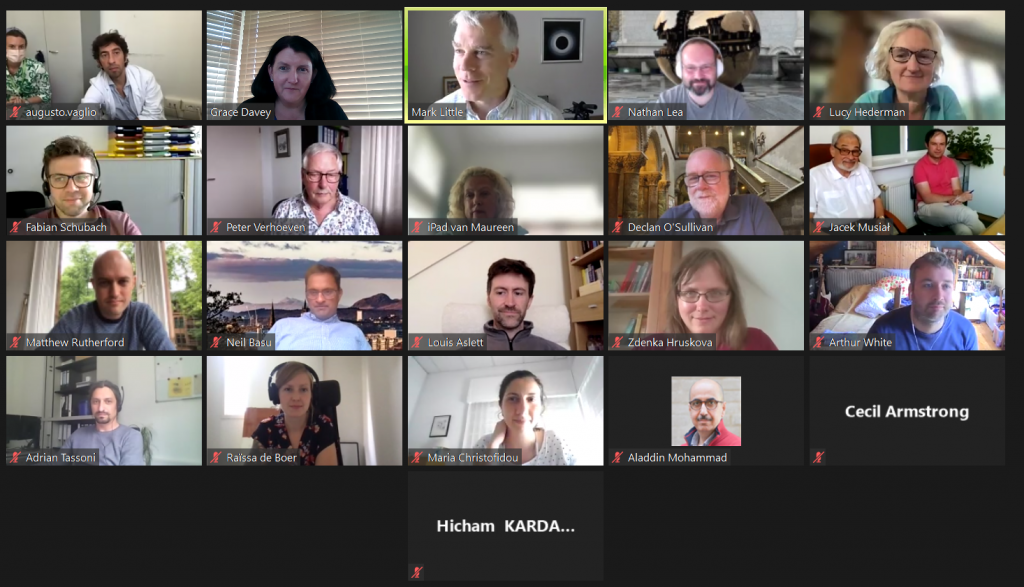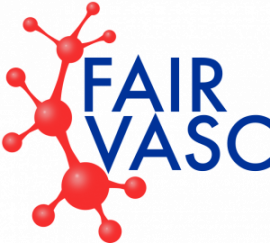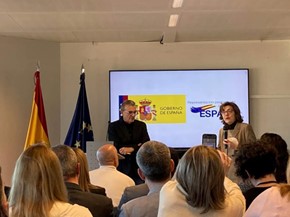The FAIRVASC consortium held its second plenary meeting on 05 July 2021 (delivered online due to the COVID-19 Pandemic). Project partners from 8 countries presented updated progress on the FAIRVASC project and summarised the significant achievements within each work package in the first year of project activity.
In WP1 a registries technical handbook has been completed describing each registries metadata and the FAIRVASC registries have completed ERDRI registration. A data quality worksheet is being implemented across the registry sites. WP1 are also actively involved in the implementation of the FAIRVASC infrastructure, especially from the clinical phase. Together with WP3 and WP5 they have coordinated the various sub teams within FAIRVASC. Three sub-teams have been established: the Harmonisation Implementation Team (HIT), the FAIRVASC Implementation Team (FIT) and the Query Implementation Team (QIT). A full description of the FAIRVASC Implementation team workflow is provided here.

FAIRVASC Implementation team workflow
The FAIRVASC patient representative partners have been actively involved with WP2 to plan a series of 3 workshop sessions for patient representatives from the European Reference Networks (ERNs) to explain FAIRVASC, its aims and contribution, discuss data transparency and develop privacy notices and information leaflets, so the public are better informed about vasculitis research in FAIRVASC.
IN WP4 an initial version of the FAIRVASC Dashboard (Researcher Support Query Interface) has been designed and is being reviewed by the FAIRVASC Team.
WP5 have worked together with our specialists i~HD in WP2 to develop a legal governance package for data sharing in WP5, and the team is poised to set up the LUND repository for the anonymous datastores from across the registries, to answer more in-depth questions that can’t be answered by aggregated findings from local triple stores. Initial clustering and predictive modelling AAV research experiments are being performed by FAIRVASC partner LUND.
The FAIRVASC project team is setting tentative dates for the release of version 1 of the FAIRVASC infrastructure in the coming weeks, which is a very important project milestone.

The FAIRVASC Consortium
The FAIRVASC second plenary meeting concluded with an invited seminar from Professor Morris Swertz (Head of Genomics Coordination Center, and Professor of Bioinformatics at the University Medical Centre at the University of Groningen). Professor Swertz presented a background to his work in particular the open-source platform MOLGENIS, together with a detailed discussion on Federated Authentication and Authorization Infrastructure (AAI), a key credentialing service that he is developing which is of interest to FAIRVASC.
With the first year of the FAIRVASC project successfully behind us, the FAIRVASC consortium looks forward to continuing the great progress achieved and hope to meet in person very soon!



